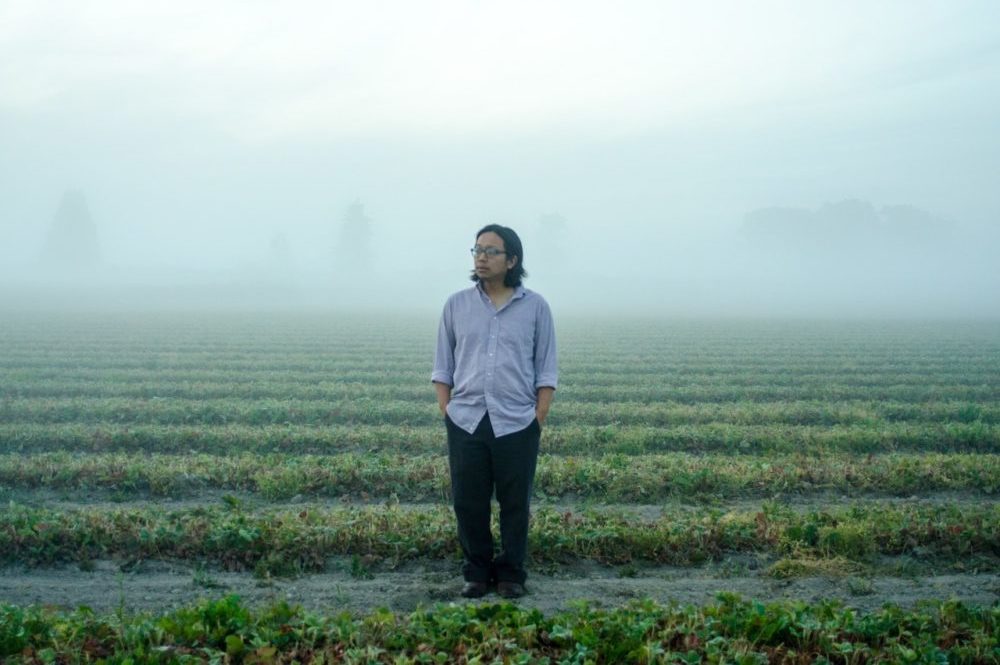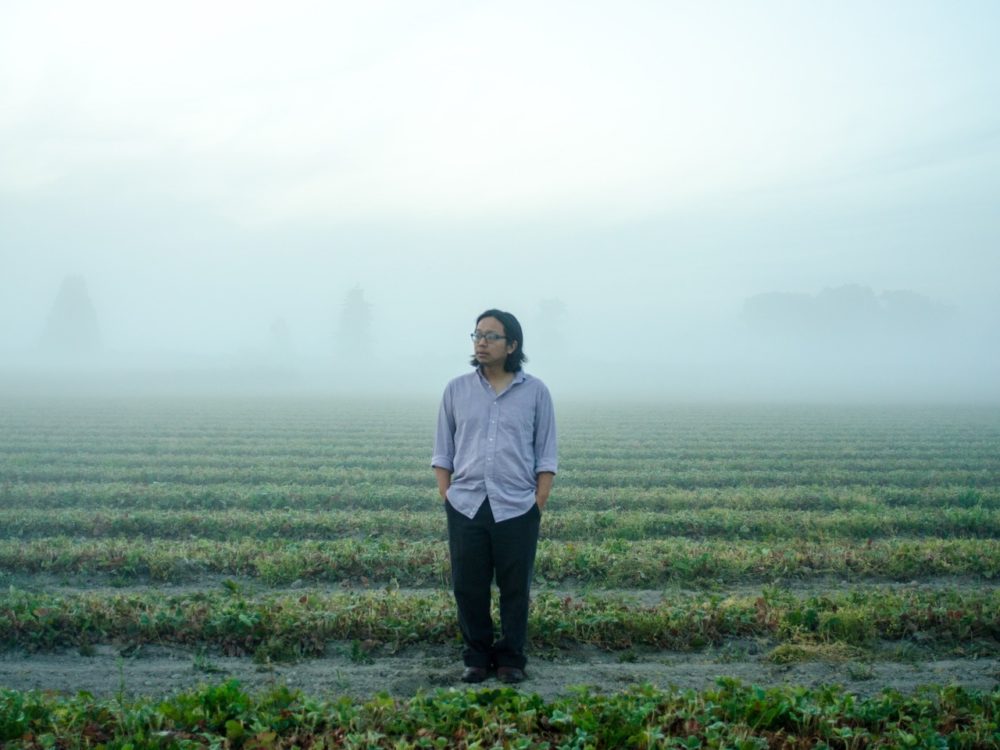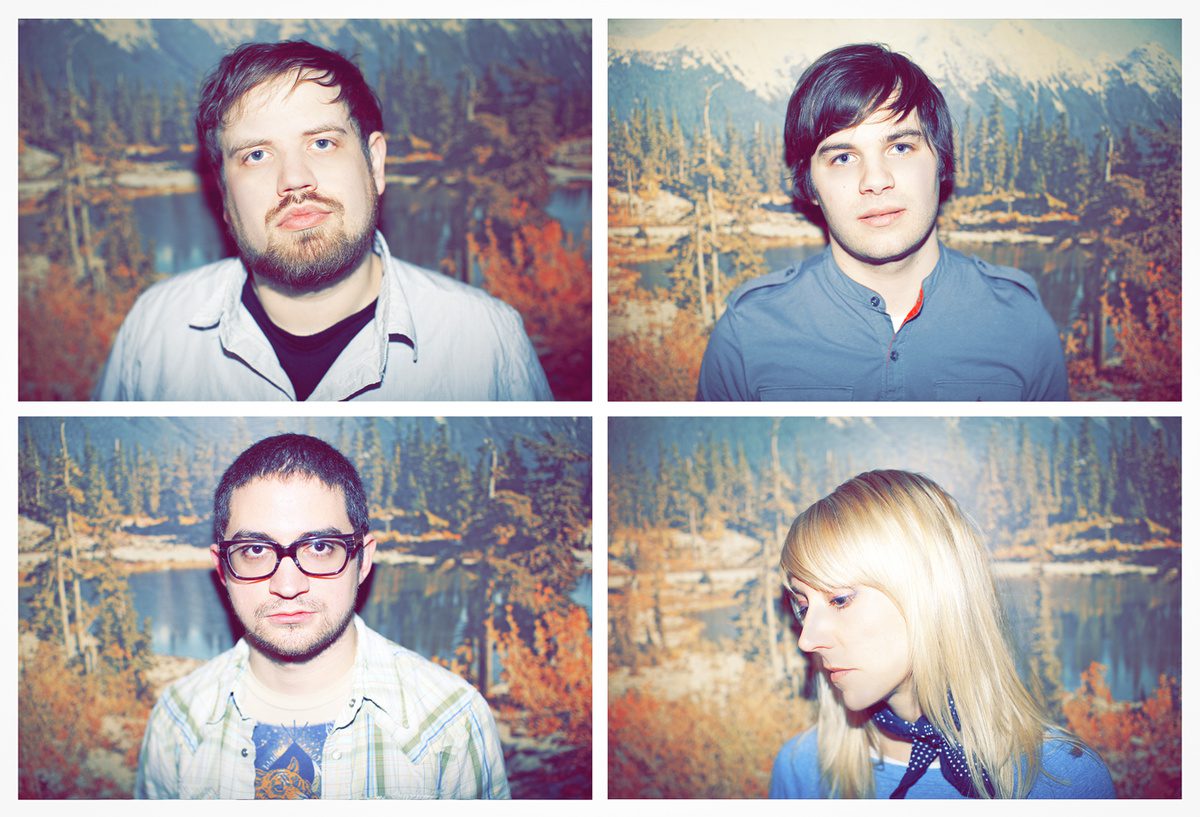

For more than a decade, songwriter Tomo Nakayama has been a staple of the Seattle music scene—first as leader of the eight-piece chamber pop group Grand Hallway, and more recently as a solo artist known for his tender and nuanced indie folk.
But, after a prolonged period of feeling uninspired over the last couple years, Nakayama decided it was time he shake things up a bit for himself and his listeners. The result is the the newly-released, revelatory pop album, Melonday, his first collaboration with childhood friend Yuuki Matthews of The Shins, and a significant stylistic pivot for Nakayama, emphasizing simmering synth loops and a glossy dream-pop vibe a la Beach House, Matt & Kim, and Wild Nothing.
Beyond achieving a different sonic quality than albums past, the 8-track Melonday has an undeniable sense of renewal and celebration about it—as Nakayama rediscovers inspiration, emotional truth, spontaneity and lightness through the songwriting process. By sheer coincidence of timing, this also lends Melonday a tremendous resonance and the ability to uplift a shaken world during the current pandemic.
In short, Melonday comes just in time.
Nakayama took some time to speak with Audiofemme about the personal impact of his new sonic direction, his childhood friendship with Yuuki Matthews, and the unexpected gift of releasing this album during the pandemic.
AF: The new album is definitely a diversion from the pared-down folk songwriting you typically do, and I’m wondering what inspired you to go a new direction?
TN: I think ever since I stopped playing and touring with Grand Hallway, which was a big eight-piece band, I’ve been scaling things down musically and focusing on becoming a better solo performer. But at a certain point that approach peaked, and I could feel myself becoming complacent and uninspired. At the same time I was listening to a lot of pop music for my side job scoring music for TV and commercials, and while I loved a lot of the production and textures I was hearing, I noticed a lot of modern songwriting leaning more and more on linear, loop based structures that have no discernible hook or personality, which was very different from the new wave/dance pop music I loved growing up. So I wanted to take what I learned over the years as a songwriter and apply it to this genre, to see what I could add to the conversation and make it more interesting.
AF: I read that you were feeling a creative block. Do you remember the moment you finally felt “unblocked”? Can you describe it and where you were in the making of the new album?
TN: It was when I decided to put vocals over the instrumental for “Get to Know You,” which is the first song on the album and the first song we recorded. I improvised the melody and the words on the spot, and the whole thing more or less kind of tumbled out in one take. I wasn’t exactly sure what I’d made or what I was going to do with it, but I just knew that I really liked listening to it. So we kept going from there.
AF: Once you figured out your new direction, did you have some artists you were using as key inspirations to this new sound?
TN: Honestly, I didn’t really have a specific sound or artist in mind. I think my brain just kind of categorizes anything with a synth and drum machine as “pop,” so I was just accessing the general feeling that that music evokes in my head. Like, the feeling of singing karaoke with my friends, how the melody and structure just flows so joyfully and effortlessly. And all my favorite pop singers tend to be women – Robyn, Björk, Taylor Swift, Whitney Houston, Cyndi Lauper – so lyrically, I found myself approaching it from a more feminine perspective, more emotionally expressive and more willing to be vulnerable, maybe.
AF: Tell me about your relationship with Yuuki Matthews. How did you meet and what did he bring to this new album that was vital to the final product?
TN: I’ve known Yuuki for years. We actually went to the same middle school together and grew up going to the same all ages punk shows on the east side. I’d followed his work closely, playing with Pedro the Lion and Sufjan Stevens, to his current gig playing and producing The Shins, but we’d never collaborated until he helped me mix my first solo album Fog on the Lens. We really hit it off right away, I think because we’re both self-taught, have similar backgrounds being Asian American suburban kids playing indie rock, and we have a similar DIY approach to recording and writing. He’d also been working closely with Richard Swift during this time in their project Teardrops, so I feel like a lot of his intuitive production techniques and anything goes approach to music rubbed off on our project by osmosis. Yuuki helped me shape these songs and really level it up to a whole new realm. He really encouraged me to keep working on this thing, not just as a genre experiment or songwriting exercise but to embrace it fully and make it part of my musical identity. On a deeper level the recording process was also kind of a therapy for both of us because we were both going through intense experiences of grief and loss. Each day we’d work for a few hours and then go get lunch and talk about our families and friends and being a musician and balancing that with our personal lives.
AF: What’s the story or meaning behind the title, Melonday?
TN: I’d initially toyed around with releasing this under a different name, and Melonday was going to be the name of our band. But starting a band from scratch is a super difficult thing to do these days, and all the advice I got from people at labels and other musicians encouraged me to release it under my own name. I was thinking specifically of the Japanese custom of gifting melons, which are sold at gift shops in these really fancy boxes for like $200 or more. The idea of taking an ordinary, organic object like a melon and dressing it up differently and thus changing its perceived value made me laugh, and I thought it was kind of fitting for a pop record. I also just really liked how the word looks and sounds kind of like “melody” or “Monday” – it’s simple and evocative.
AF: I know you’re going through a personal hardship right now, and like much of your music, I sense that this album was vital to finally coming to terms with it. Would you say that’s true? Does playing and writing music typically help you process the hard stuff?
TN: I often say the songwriter is the last one to understand what a song is really about. The interesting challenge I found with these upbeat, highly rhythmic songs is that there are a lot of syllables you have to fill, so I found myself writing without analyzing the words. And doing that kind of freewriting led to a lot of conflicting, contradictory emotions that I’d normally have edited or smoothed out. And this process ended up tapping into my subconscious and revealing a lot of feelings I’d suppressed in my personal life. It’s like that scene in Good Will Hunting where Matt Damon looks at a painting that Robin Williams has hanging in his office, and the therapist says “It’s paint by numbers,” and Will replies “Yeah? Is it also color by numbers?” and immediately identifies the torment in the guy’s life from his color palette. Art is such an interesting, revealing thing. It never lies.
AF: This album is so many things, but it is also unabashedly poppy and exceedingly radio-friendly. I love that aspect of the album, but I also know some artists look at “pop” as a dirty word. Was there a worry for you in going in more a pop music direction?
TN: One thing I knew going in was that I didn’t want to approach the “pop” genre cynically or from an ironic distance. If I’m going to do something I’m gonna fully embrace it and go all the way, which I think we did with this album. I did worry a bit about alienating my fans, the people who liked the quiet acoustic songs (which I still love as well). To me, this album isn’t a cash grab or a calculated ploy for a bigger audience. I did it because it was fun and exciting to me. Mostly I didn’t want to disappoint anybody or let them down. But I knew this is just where my heart was at this specific moment in time, and I couldn’t stomach the idea of creating something else just for the sake of pleasing someone else’s idea of who I am. At the end of the day, you really have no control about how your work is perceived or received anyway. My only duty as an artist is to be honest, and do what interests and inspires me, you know what I mean? And so far the reception has been super positive, which makes me very happy!
AF: Did you record this yourself? It’s so well-engineered.
TN: Yes, I did all of the initial tracking at home on Logic using their basic plugins. I used a drum machine app on my iPhone for all the beats. Yuuki transferred those files onto ProTools and then we overdubbed a bunch of parts at his house. Sometimes he would just listen to the ideas of the song and then strip it down to just the vocals, and we’d rearrange and replace all of my instruments, chop up the beats and form a whole new backing track. “Free to Go,” for instance, originally had more of a Hall and Oates sort of bounce, and Yuuki broke it down into this slower half-time groove, making it more of a hip hop beat. It was a super fun, easy process of collaboration.
AF: What has it been like to release a new album during the pandemic? Have you been required to get more creative in how you promote it? I see you doing lots of small, FB live performances and you’ve got a virtual release show with Night Tapes coming. Tell me about those, too?
TN: Obviously it wasn’t my dream to release a dance album in the middle of a global pandemic, but in a way it has been a sort of blessing. I’m glad I’ve had something I could share with people that could help raise their spirits. I had an “album release show” at my house a couple weeks ago when the album came out and it was really cool to see so many people watching at the same time and chatting with each other. It really did feel like a communal event. I think it’s super important to stay physically active while we’re sheltered at home, so I’m hoping this music can be a soundtrack for people’s home dance parties. I’ll be playing a few other livestream events in the coming weeks, which people can follow on my Facebook and Instagram. The 4/30 show with Night Tapes was the original album release show at the Sunset that we had planned. It has been postponed indefinitely.
AF: The reception to this new album has been really great so far—#1 on KEXP, etc. How does that feel? Validating? Confusing?
TN: A lot of the songs on the album are about finding true human connections in the modern world, and I think the current state has put a new context to that message, and I’m glad to see it seems to be resonating with so many people. KEXP and The End and other local stations and publications and all my friends and family have all been super supportive. I’ve been blown away by the love, and I am super grateful to them. It feels amazing and also not quite real because I haven’t been able to perform these songs live in front of people. I can’t wait until we can do that again.
AF: What are some goals for yourself in the next year or so?
TN: My immediate goal is to stay healthy as I can and make sure my parents and family are healthy as well. That’s the only thing that matters to me at this point. Obviously it’s going to take a while for everyone to recover from this, and I want to do whatever I can help out in my community. Other than that, I’m just going to keep making music and going wherever my heart takes me. I can’t wait to see what happens next.
Follow Tomo Nakayama on Facebook for ongoing updates.



